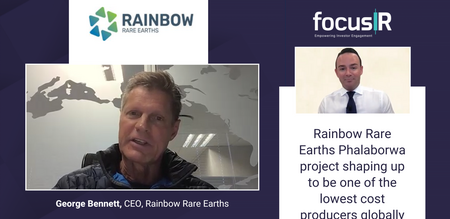* Pension funds, insurers battle for deals on their own
* Private equity fees, desire for more control spur change
* Buyout firms say adapting to trend with co-investments
By Tommy Wilkes and Anjuli Davies
LONDON, March 22 (Reuters) - Tired of the hefty fees chargedby private equity firms and wanting more say over what they buy,big investors like pension funds and insurers are taking mattersinto their own hands.
Some are buying stakes in companies directly or teaming upto invest alongside private equity firms rather than lockingmoney away in those firms' funds.
That is posing a challenge to the $3 trillion private equityindustry, where companies like KKR and Apax spearheadedthe model of raising money from investors to put to work ontheir behalf in exchange for management and performance fees.
For the first time in their history, buyout firms areraising less money from investors, and there are signs thattrend could continue.
According to industry tracker Preqin, 43 percent ofinvestors in a survey this year said they planned to increasethe money they put into co-investments, in which investors dodeals alongside buyout firms but pay no fees.
The proportion of investors that currently co-invest hadalso risen to 36 percent by the first quarter of this year, upfrom 33 percent a year earlier, the surveys showed, indicatingrising interest in investing outside traditional funds.
"Co-investment is an effective mechanism to get your feedown and it gives you more control over your exposure," saidSimon Moss, Head of Europe at Hermes GPE, an investor with 20percent of its 6 billion pounds ($9.1 billion) in assets inco-investments.
In a private and opaque market, estimating how much capitalbypasses private equity funds is difficult, but there are signsmore investors are publicising an alternative approach.
British insurer Legal & General said on Monday itwas taking a 46.5 percent stake in UK housebuilder CALA Groupalongside Patron Capital, part of a plan to do more directinvestments in education, housing, transport and energy.
It follows big investors like The Canada Pension PlanInvestment Board (CPPIB), which last year bought a stake inmotorcycle grand prix organiser Dorna, and the Ontario Teachers'Pension Plan Board in doing more deals outside of funds.
The $173 billion-strong CPPIB has now bypassed funds formore than $11 billion of private equity investments, accordingto its website, against $42 billion committed to funds since2001. Past direct deals include stakes in jet engine componentmaker Avio and health and beauty group Alliance Boots.
In expanding co- and direct investing, pension funds andinsurers are, in part, mimicking sovereign wealth funds whichhave long taken it on themselves to scour the world for assets.
FEES
The question of fees often looms largest in choosing how toput money to work. Backers of buyout funds typically face annualmanagement fees of 2 percent and performance fees of 20 percent.
But the apparent cost-saving of avoiding fees can bemisleading, as investors need in-house expertise and time on theroad to examine possible deals. More concentrated exposure alsomeans returns - or losses - are amplified.
Andre Bourbonnais, who leads private equity investments atCPPIB, told delegates at a recent conference in Berlin his fundhas a team of 45 people in Hong Kong, London and Toronto"dedicated exclusively to executing on direct transactions."
These staffing costs make going direct prohibitive forsmaller investors, though by teaming up for direct stakes theycan glean knowledge to help them decide on future deals.
"Sometimes private equity firms become so focused onsecuring an investment at the expense of thorough research ...With a co-investment model, there is greater scope toobjectively evaluate an opportunity," Hermes GPE's Moss said.
Heavy writedowns of their private equity fund holdingsduring the financial crisis has added to investors' desire formore control over which companies they back.
But unlike the activist private equity manager, pensionfunds often prefer a hands off approach with the companies theyown, and do not put their own staff on to boards.
This reluctance to commit extra resources to an investmentmeans a lot will limit themselves to co-investing, where theycan piggyback - but are also reliant - on the restructuringchanges their buyout partners make to portfolio companies.
Where they do own stakes directly, pension funds often keepassets for longer than buyout houses, reducing the need forquick exits - a problem for private equity funds during thefinancial market crisis when deals dried up. Walgreen's purchase of a stake in KKR and CPPIB-owned Alliance Boots lastyear shows it can be done, however.
TIMING
Desperate for cash as clients cut back, private equity firmshave shown themselves willing to team up with investors outsideof their funds, even offering prospective clients the chance.
Hermes' past deals include a stake in law firm Parabisalongside Duke Street, and a stake in Brit Insurance withLondon-based private equity giant CVC.
Some private equity executives say the rise of co-investmentdoes not threaten their business model - rather, it aids itbecause investors are more likely to back their funds in future.
Private equity firms that successfully offer co-investmentswill be the "winners" of the future, Head of Infrastructure atAXA Private Equity Mathias Burghardt said.
"The ability to offer co-investments is very important," hetold Reuters. "The investor wants to shape his own portfolio."
Other executives caution about the rush to team up outsidethe fund, and say a balance must be struck.
While investors want to learn about prospective deals asearly as possible, buyout houses say bringing them in at initialstages is a non-starter because they do not want to reveal theirhand until they are sure about price, financing and structure.
This leaves pension funds and insurers with a short windowto decide whether or not to back a deal.
"We tell them you've got three weeks. In three weeks youeither say yes or no. Sometimes that's too tight for them," oneindustry executive said at a conference in London last week.




